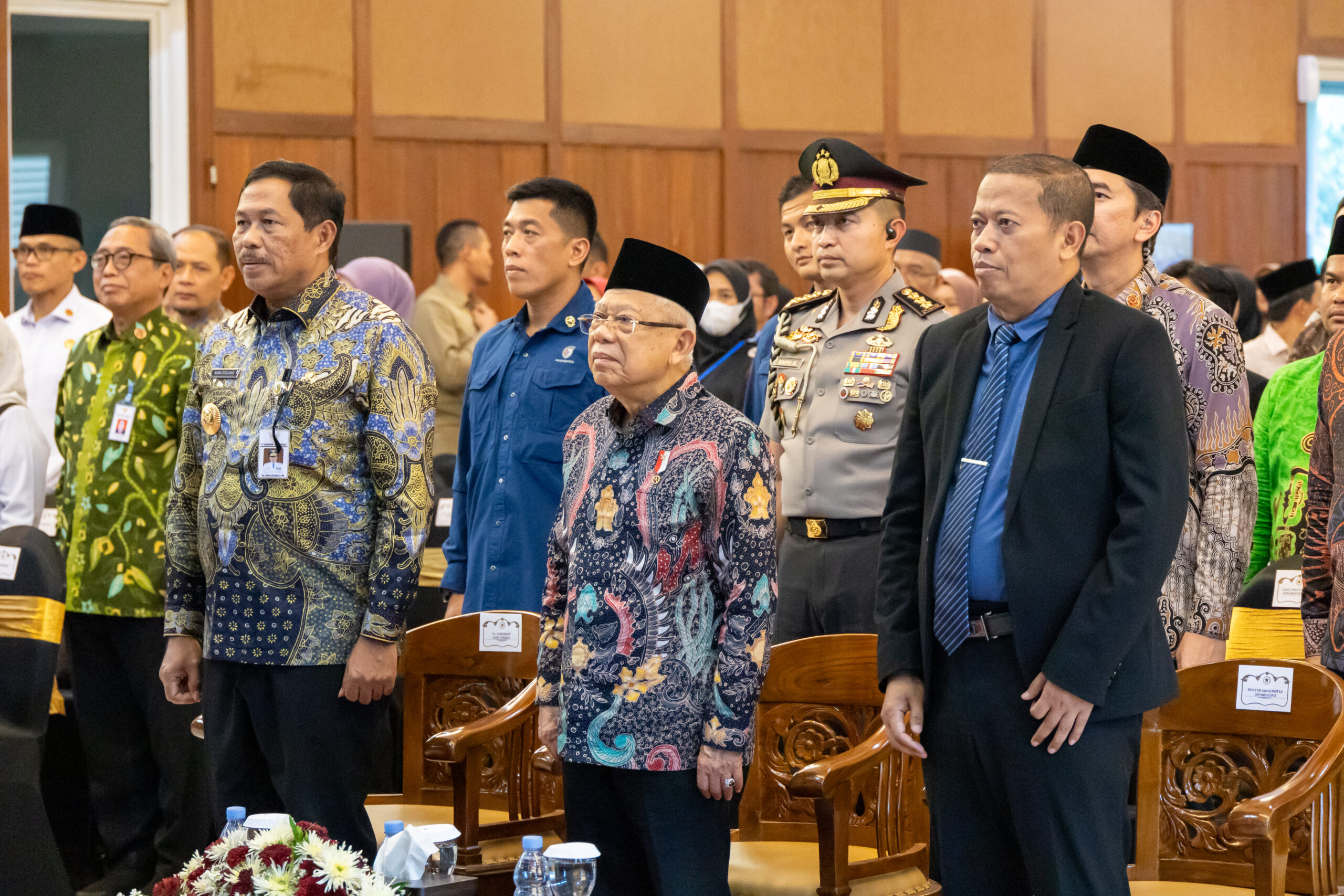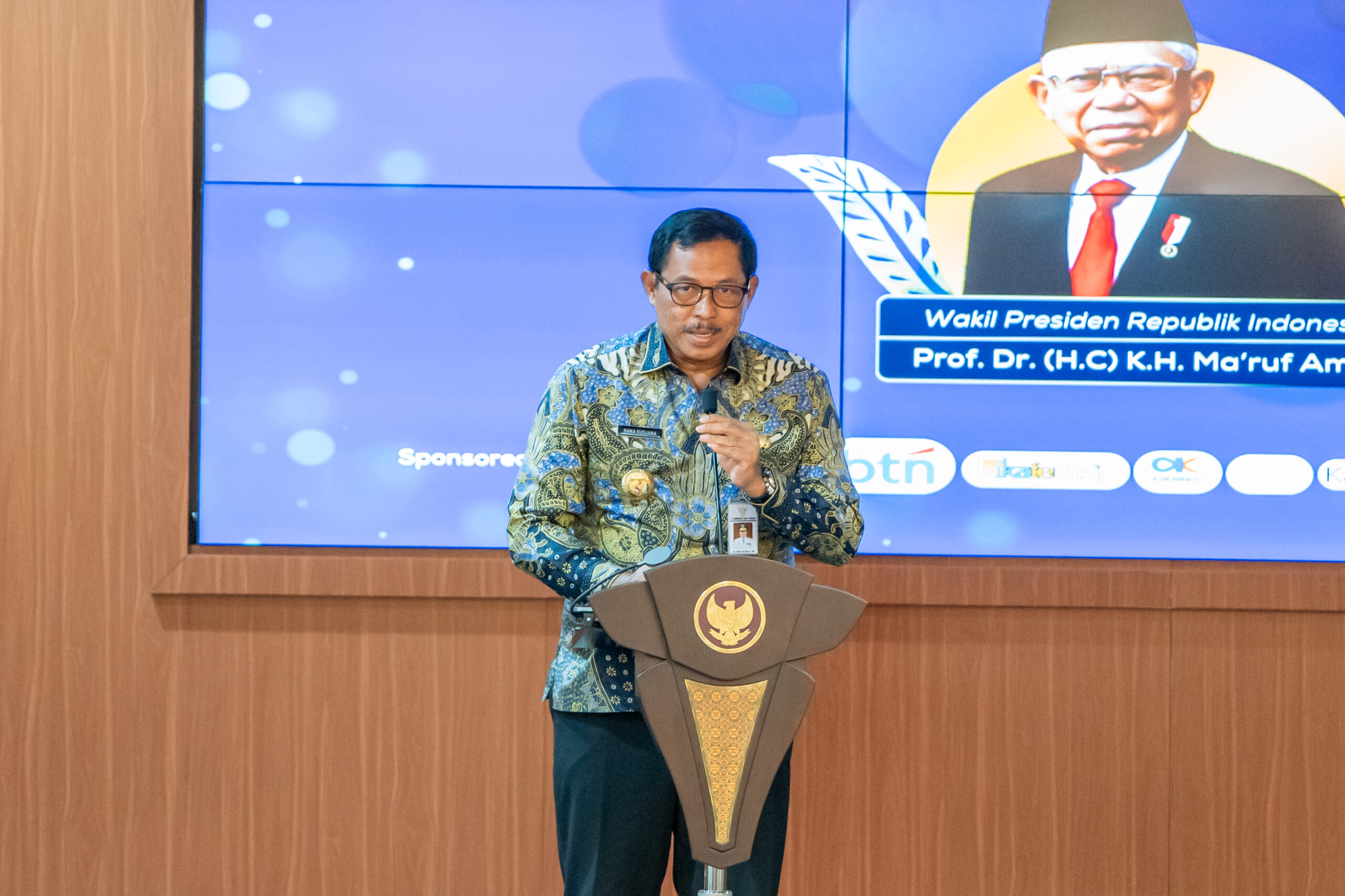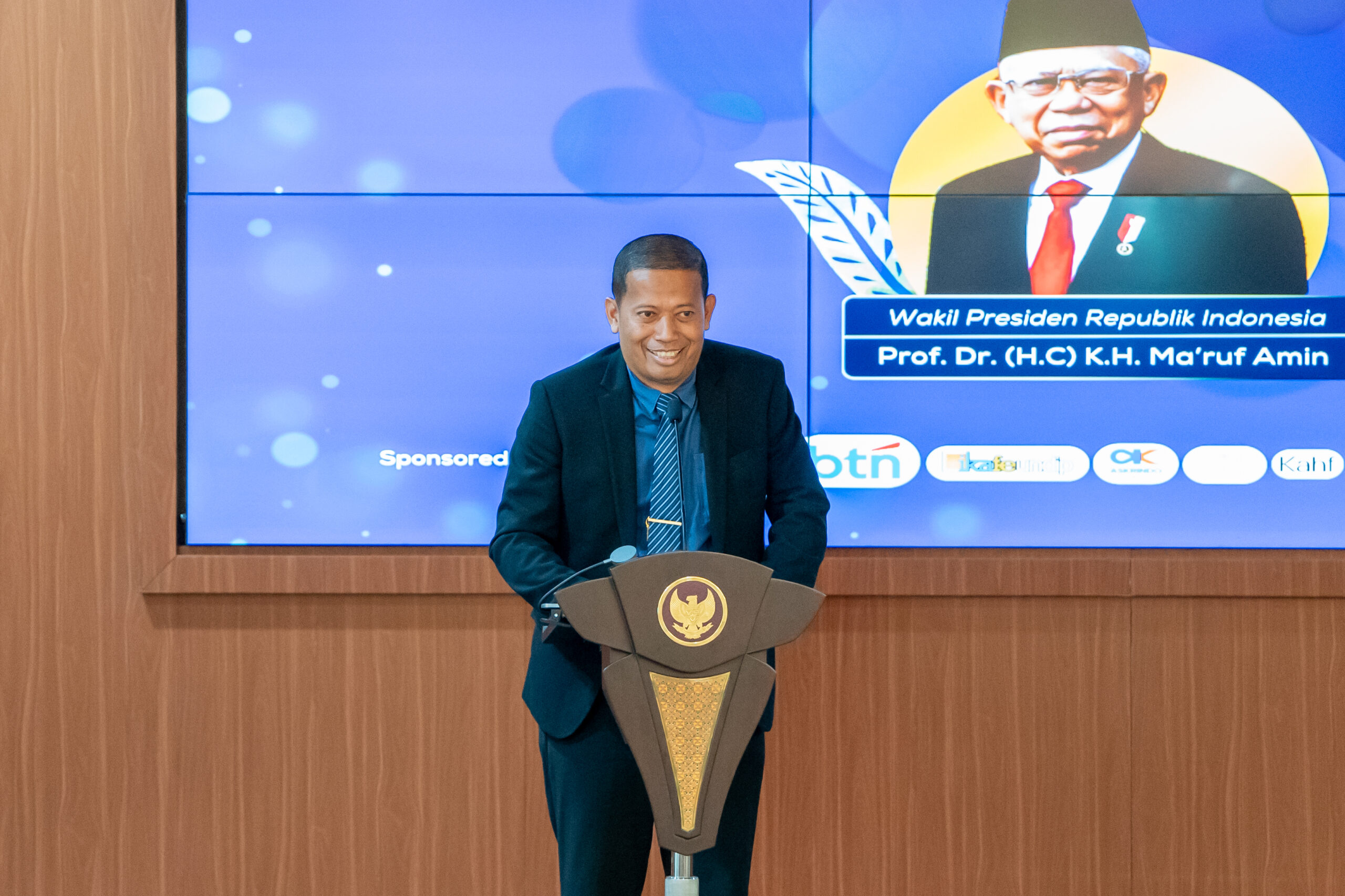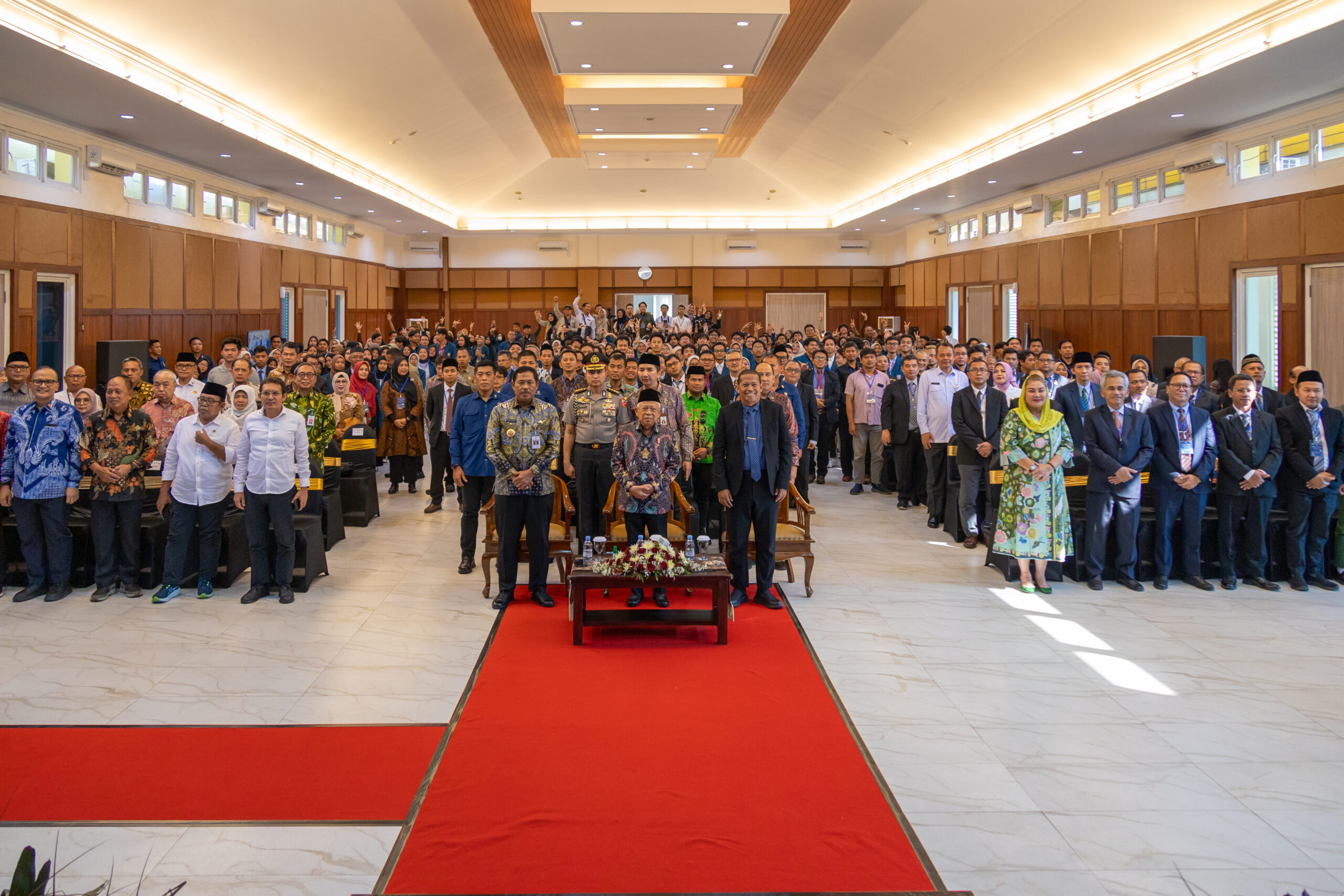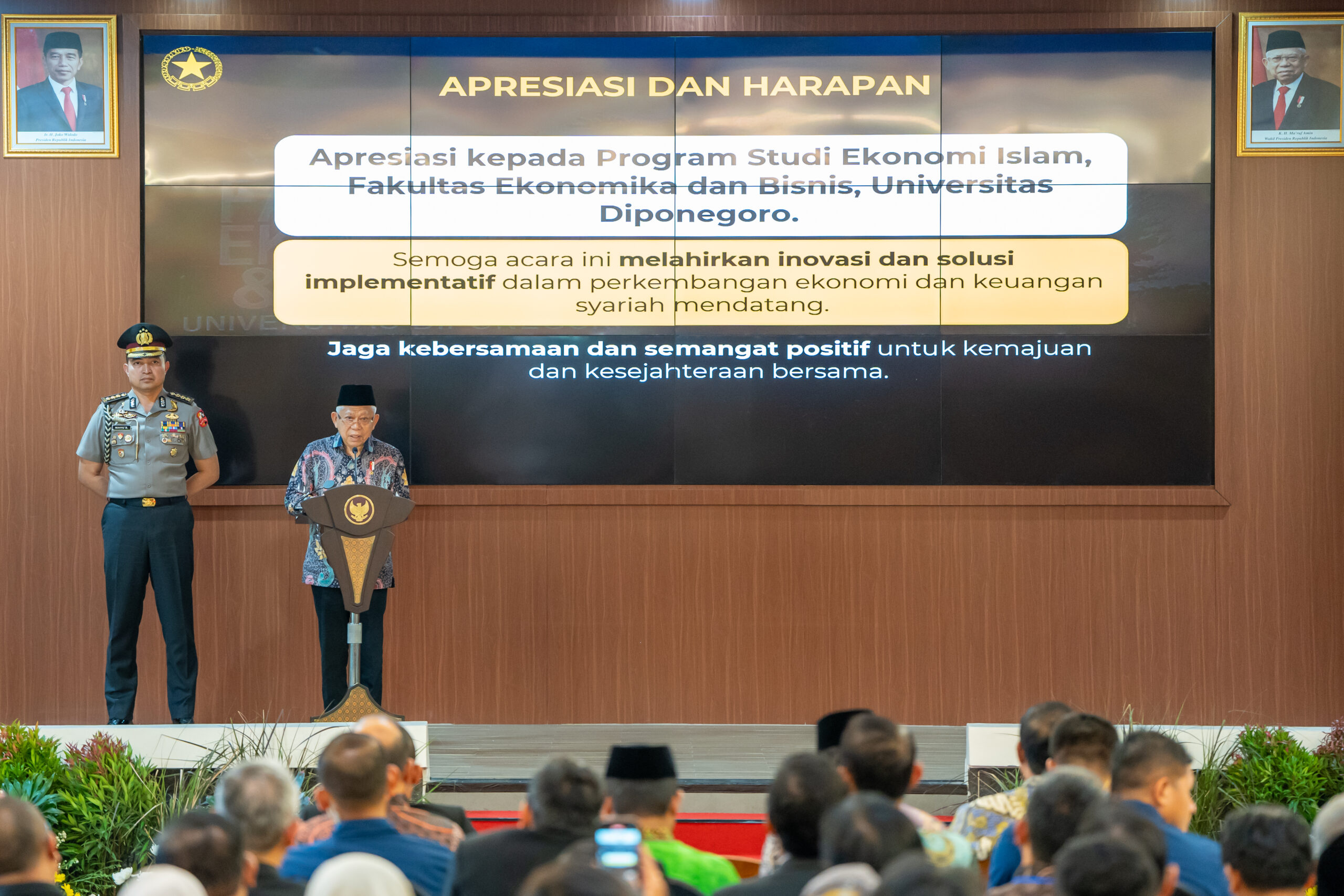Universitas Diponegoro (UNDIP), through the Islamic Economics Study Program and the Islamic Economics Study Group (Kelompok Studi Ekonomi Islam / KSEI) of the Faculty of Economics and Business, proudly held a National Seminar titled “Reading the Sharia Economy and Finance under Indonesia’s New Government” on Wednesday, September 11, 2024, at the Faculty of Economics and Business, UNDIP Tembalang Campus, Prof. Moeljono S. Trastotenojo Street, Tembalang, Semarang City.
The event aimed to provide insights into the developments and challenges of Sharia economics, both nationally and globally. It highlighted a focus on policy direction under the new government and coincided with the tenth anniversary of the Islamic Economics Study Program.
The seminar featured prominent figures in Islamic economics and finance. Prof. Dr. (Hc) KH Ma’ruf Amin, M.Ag., Vice President of the Republic of Indonesia and Chairman of the National Sharia Economy and Finance Committee (KNEKS), delivered the keynote speech. He emphasized the critical role of Sharia economics in supporting Indonesia’s economic growth and outlined strategic plans for its development.
“This achievement demonstrates that Islamic economy and finance can adapt to changing times, contribute to the national economy, hold significant potential in the global market, and become a new driving force in Indonesia’s economy,” said Vice President Ma’ruf Amin in his speech.
Moreover, the Vice President of the Republic of Indonesia noted that the contribution of Islamic economics and finance to the national economy has seen rapid growth over the past five years.
“The contribution of Sharia business activities to the national GDP reached nearly 47 percent by December 2023. Additionally, the market share of Sharia finance has reached 11.04 percent of total national financial assets,” he explained.
In the Islamic social finance sector, the accumulated potential of cash waqf amounted to 2.56 trillion rupiah. Furthermore, the Vice President added that zakat, infaq, sadaqah, and other religious social funds have reached 32.3 trillion rupiah.
The Vice President also praised Indonesia’s contributions to Islamic economics and finance on a global scale. “The development of Islamic economics and finance globally is also quite remarkable,” he stated.
“Indonesia ranked third in the Global Islamic Economy Indicator and Islamic Finance Development Indicator in 2023,” he concluded.
At the same event, UNDIP Rector Prof. Dr. Suharnomo, S.E., M.Si., reported that Universitas Diponegoro, through the Islamic Economics Study Program and the Islamic Economics Study Group (KSEI) of the Faculty of Economics and Business, proudly organized this National Seminar with the goal of providing insights into the developments and challenges of Islamic economics, both nationally and globally, focusing on policy directions under the new government.
“This event also marks the tenth anniversary of the Islamic Economics Study Program,” he stated.
The Rector expressed gratitude and pride at the Indonesian Vice President’s presence. “It is an honor for us that the Vice President of the Republic of Indonesia, who is also the Chairman of the National Sharia Economy and Finance Committee (KNEKS), is willing to share insights on the developments and challenges of Islamic economics both nationally and globally,” said Suharnomo.
The discussion was enriched by expert views from two prominent speakers: Assoc. Prof. Sutan Emir Hidayat, Ph.D., Director of Islamic Economic Infrastructure at KNEKS, and Ir. Adiwarman Azwar Karim, SE, MBA, MAEP, Vice President Commissioner of Bank Syariah Indonesia. The seminar was moderated by Aris Anwaril Muttaqin, Lc., M.Si., ensuring dynamic and interactive discussions.
Some of the key topics discussed at the seminar included: first, the progress of Indonesia’s Sharia economy on the global stage, evidenced by Indonesia’s ranking third in the 2023 Global Islamic Economy Indicator, rising seven places in the last decade; second, the future of Sharia financial infrastructure, including the integration of Islamic finance with the national economic system, and strategies to encourage innovation and competitiveness in Sharia products and services.
Students, academics, and key stakeholders in the Sharia financial sector attended the seminar. It provided valuable information and perspectives to advance the development of Islamic economics in Indonesia. The event affirmed Indonesia’s potential to become a global hub for Islamic finance, particularly with support from policies under the new government.
The event concluded with a joint commitment to advance research, education, and collaboration in the field of Islamic economics, ensuring that the Islamic economy continues to be a driving force in Indonesia’s national development.
